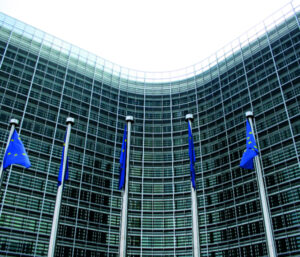 The European Commission has approved support for a Combined Heat and Power (CHP) plant in Vilnius, Lithuania, under EU state aid rules. The project will be financed by the European Investment Bank through the European Fund for Strategic Investments, EFSI, along with state aid granted by Lithuania.
The European Commission has approved support for a Combined Heat and Power (CHP) plant in Vilnius, Lithuania, under EU state aid rules. The project will be financed by the European Investment Bank through the European Fund for Strategic Investments, EFSI, along with state aid granted by Lithuania.
Commissioner for Competition Margrethe Vestager said “The Lithuanian project to build a combined heat and power plant in Vilnius is a good example of the Juncker Investment Plan mobilising investment. It is in line with our state aid rules and it benefits Lithuanian citizens – and the environment.”
Lithuania has notified plans to the Commission to grant €150 million in state aid to build a new highly efficient CHP plant in Vilnius.
The CHP plant will generate electricity for the Lithuanian power grid and heat for the district heating system of Vilnius. The plant consists of two units, one fuelled by non-recyclable municipal waste and the other by biomass. The municipal waste incineration unit will be able to produce 18 MW of electrical power and 53 MW of thermal power. The biomass unit will have a capacity of 70 MW of electrical power and 174 MW of thermal power.
The Commission assessed the project under its 2014 Guidelines on State Aid for Environmental Protection and Energy. Under these rules Member States can grant State aid for high efficiency co-generation of heat and power subject to certain conditions. The Commission found that the project promotes energy efficiency with expected energy savings of around 40%. The state aid granted to the project respects the maximum aid intensity allowed for such investments under the Guidelines. In addition, Lithuania has demonstrated that the project would not have been sufficiently profitable to go ahead without the aid. On this basis, the Commission concluded that the state aid would not lead to undue competition distortions and is in line with EU rules.
Background
EFSI is at the heart of the Investment Plan for Europe, one of the Juncker Commission’s top priorities aimed at boosting investment to strengthen job creation and growth. EFSI was launched just over a year ago, with the EIB as the Commission’s strategic partner, and mobilises private financing for strategic investments. After a successful first year, EFSI is already expected to mobilise €116 billion across 26 Member States, benefiting more than 200,000 small and medium-sized enterprises (SMEs).
The non-confidential version of the decision will be published in the state aid register on the competition website under the case number SA.41539 once eventual confidentiality issues have been resolved. The State Aid Weekly e-News lists new publications of state aid decisions on the internet and in the EU Official Journal.
Source: European Commission